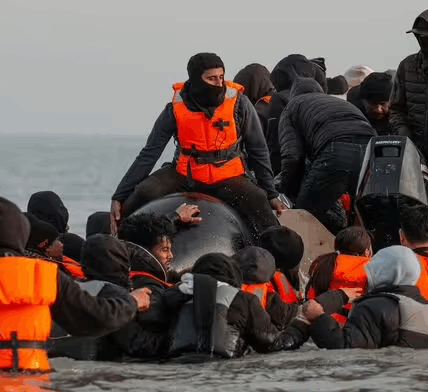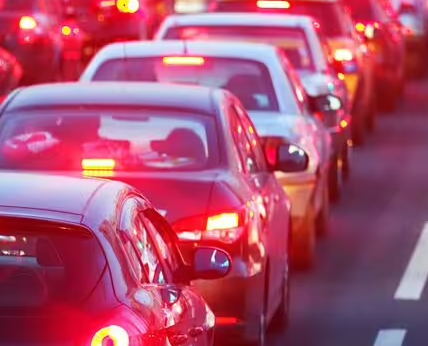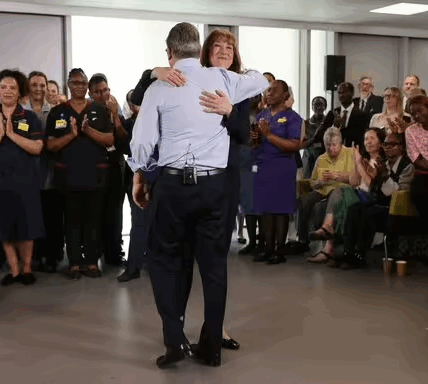With over 40 countries and tech bosses gathering in Central London, Sir Keir is hoping for a drastic change in the fight against smuggling gangs.

Keir Starmer is under pressure to end the Channel migrant crisis (Image: Getty)
Standing in one of the grand meeting rooms in Lancaster House, Prime Minister Sir Keir Starmer insisted there is a “real appetite” for tackling illegal migration.
With over 40 countries and tech bosses gathering in Central London, Sir Keir is hoping for a drastic change in the fight against smuggling gangs.
And he started his 15-minute speech by highlighting a previous summit in the same luxurious surroundings to bolster support for Ukraine.
Sir Keir, addressing Europe’s biggest land war since 1945, added: “We can only deliver it by taking bold action at home, with the biggest increase in defence spending since the Cold War.”

Keir Starmer hopes to get help in the battle against smugglers (Image: Getty)
This comparison really concerns me.
Kyiv has repeatedly throughout the war, called for more support, in the form of air defence systems, missiles, tanks, fighter jets and political backing.
Just last week, Europe’s top diplomat, Kaja Kallas, had high hopes of being able to mobilise as much as €40 billion of military aid to shore up Ukraine‘s position on the battlefield and strengthen its hand in upcoming talks with Russia.
But the plan is effectively laying in tatters and has been significantly watered down.
Indeed, there are many people here who believe Sir Keir Starmer’s commitment on defence spending doesn’t go far enough.
So, is history going to repeat itself?
Are we in a position where action fails to match the undoubtedly tough rhetoric?
Home Office figures point to the scale of the crisis. More than 6,600 migrants have crossed the Channel so far this year.
That is a record number for the first 3 months of a calendar year.
And, as the Prime Minister and Home Secretary Yvette Cooper admitted, the gangs have “taken hold” across Europe.
Smashing them is a noble, and important goal. I’ve seen boats being launched from French beaches. The chaos is something that will stay with me for the rest of my life, with people falling into the freezing water as they attempt to cling on to rubber death-traps.

More than 6,600 migrants have crossed the Channel (Image: Getty)
But, in the first roundtable, Border Security Commander Martin Hewitt admitted the UK is still too attractive. Labour will, in response to this, point to changes on working rights and their crackdowns on rogue firms hiring people with no right to be here.
And, for all the talk about smashing the gangs, the numbers crossing the Channel suggests they are thriving.
Speaking to reporters in Lancaster House, the Prime Minister compared the fight against smuggling networks to drug or gun runners.
But, as many academics will attest to, the war against drugs is being hampered by the rising demand for illegal narcotics.
And it is not unreasonable to suggest that rising global insecurity and climate change is likely to fuel more migration,
So, how do we reduce demand?
Migrants currently believe that if they can get to the UK, they can stay. They will lodge asylum claims and, in many cases, disappear.
The answer, it seems, is two-fold.
More must be done to stop the boats reaching the median line in the Channel.
Currently, smugglers know that if they can get their boats into the water, they have effectively “done their job”. Border Force will detect the vessel and take the migrants to safety.
Getting to the point where France takes migrants back to the coast is, in my view critical.
The French, of course, have vowed to change their laws to intercept boats in shallow waters.
Going further is crucial.
And the Government must send a clear message that illegal migrants who do make it to the UK will be deported.
Labour insists they are returning more people than the Tories have for eight years.
But they are still unable to deport the biggest cohorts of Channel migrants. Afghans, Iranians, Syrians, for example.
So the cancellation of the Rwanda scheme is a question that Keir Starmer will face until a replacement is set up.
When the largest cohorts know there is high likelihood of deportation and the smugglers know they won’t be able to get their boats across to British waters, a true deterrent will have been created.
Only then could we see an end to this crisis.




